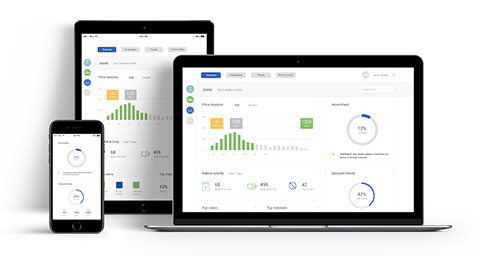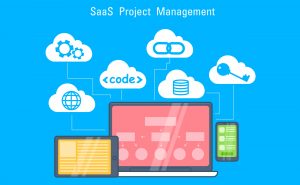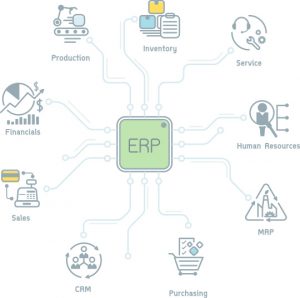What is a cloud based CRM ?

Before diving into CRM cloud solution let us first explain what is CRM ?
CRM (customer relationship management) is a real buzzword of today’s business world: everybody is talking about CRM, almost everyone knows that they can significantly benefit from it, yet only few know which solution fits their business model best.
It doesn’t matter if your company employs over 100 people or just a handful – today you already understand that the new technology called CRM is a tool that is going to help you establish closer connections with your customers, provide professional customer service, sell more and grow your business further.
While big businesses are more or less easy on spending on modern software, small businesses usually are more concerned with what they invest in. And rightly so.
Small businesses, as a rule, are very straightforward when it comes to choosing software: it has to be affordable, it should be able to help them right here, right now; it shouldn’t be complicated; it should target they unique business needs; it should be easy in terms of deployment and maintenance; and it should be accessible day-and-night.
Why?
Because a small business, typically, doesn’t own its own servers, hardware, or IT personnel; does not dispose of free large sums of money for first installment; has a very specific business profile and tailored sales processes; and, the work is not only done in the office or on the “9 till 5” basis.
So, if you are one of those 72 percent of small business owners who think that investing in modern technology, such as CRM, is going to result in a bigger ROI and help you grow your business, then let me help you steer through these unknown CRM waters and find the CRM solution that fits you best.
What is cloud based CRM?
Cloud-based CRM (or cloud CRM) means that a Customer Relationship Management (CRM) software is hosted in the cloud. Cloud-based CRM software can be accessed through the Internet, and through some computing platforms such as PC , Tablet , mobile phone etc. making it easy for all users to access the same information at any time.
And as information is stored in the cloud, you and your team can also view customer information on the go by accessing the CRM data through mobile or on your tablet.
Lifting your business up to the Cloud
IT Cloud services in general have seen an impressive lift-off recently. What will information technology systems look like inside a big business in 2025? Oracle recently made 10 predictions about that future, and this article will dig into just one of those: that “80% of all enterprise (and mission-critical) workloads will move to the cloud by 2025.”
Here are 8 reasons why Cloud-based CRM software is something that small companies should seriously consider if they want to grow their businesses further.
1. Hassle-free installation
A deep-rooted fear that CRM comes with complex installation process is no longer valid. A modern Cloud-based CRM is, in fact, “IT worry-free”, and you can be up and running in no time (no business case required, but if you do need one you can find it here). All you need is the internet connection. Then, you sign in online and use it. Simple as it is.
You don’t have to pay for hardware, server and software maintenance. Nor do you need to have a permanent IT person on site, worry about complex installations, data migration, or even upgrades – all this is done remotely for you.
2. Seamless access
Round-the-clock accessibility is by far the greatest benefit of Cloud CRM.
Imagine that you need to make some urgent, yet game-changing sales calls while on-the-go, or send an amended sales proposal, or quickly find a contact’s phone number or an e-mail when you are out of the office?
Cloud CRM gives your access to the system from anywhere – in the office, on a train, in a café, at home; and on any device – be it a desktop, a laptop, a smartphone, or a tablet. Again, all you need is the internet. Your colleagues and you can access the centralized database at any time, even outside working hours if need be, which is particularly handy for small businesses.
By always staying connected to the central database, Cloud CRM gives you the flexibility and freedom to do what you need to do when you need to do it.
3. Ease of use
It can’t get easier than Cloud CRM usage. First, you buy a software package at a fixed monthly price. All you need to do is log in with the access codes provided, and make sure you have a reasonably fast Internet connection at all times and a device you prefer to work on. As to system maintenance, it is provided by the vendor and accompanied by a wide range of self-service online services.
4. Affordable product
Another benefit is that this business-enhancing product certainly won’t break your bank. As a rule, small businesses are not likely to allocate big sums of money for a one-off purchase, but rather prefer smaller, regular installments. Which is another reason why Cloud CRM solution is optimal for small enterprises.
Typically Cloud CRM operates on the pay-as-you-go subscription model, which requires minimal upfront investment and, as a result, reduces risk. Also, there are no hidden costs like buying additional hardware or licenses fees. What you pay is a set monthly fee for a Cloud CRM package, which can be as low as €37.
5. High security levels
A very serious concern for everyone using web-based information storage systems is, of course, security. As shown in the chart by Forrester Research below, the most common reason why businesses are wary of adopting a cloud solution, also known as software-as-a-service or (SAAS), is security concerns.
Companies that offer CRM systems online know that very well and take security issues very seriously. In the end – it is they who are responsible to protect the confidential information that you trust them with.
Not surprisingly that information security levels at Cloud servicing companies are much higher than those provided by an average local IT room. Providers of Cloud CRM also offer advanced automatized back-up policies and have clear data recovery plans if a breach happens. Yet, individual users of Cloud services can further improve their data safety by using two-step authentication and strong passwords, which plays an important role in being GDPR compliant.
6. Reliable operation
Nobody wants to even imagine a possibility that a system that you rely on every day can crash. In case with small businesses this could lead to a total financial meltdown. With Cloud CRM such situations almost never occur, as all parts of the Cloud are backed up. Meaning that every component, for example – a server, has multiple replicas in the Cloud. So, if something fails, it will be immediately replaced and the system won’t get disrupted. In fact, a web-based CRM system continues to be operational 99.99% of the time – the rate reliable enough even for the fussiest of the businesses, don’t you think?
7. Flexible potential
What can be better than owning a product that is tailored for your needs?
When adopting CRM systems, small businesses are likely to start with only the features that can help them in their current work and that are relevant to their unique needs.
However, as your company grows, you may decide that you need, for example, more capacity, new features or more advanced modules. In this case, Cloud-based CRM can be instantly updated to satisfy your new needs. And you won’t have to wait until a new program is written for that purpose. The bigger, better and more innovative CRM can be provided to you straightway.
8. Enhanced compatibility
Stand-alone products have little chance of success in today’s IT world that demands flexibility of integration. Especially in a small business environment, information exchange between already available technologies is paramount.
Why would anyone invest in a software that cannot open your documents, save your contacts or be able to integrate the e-mail system that you’re using? That is why compatibility with other products and services is the key to ensuring CRM’s longevity and effectiveness.
Cloud CRM can be easily integrated with other applications or software, such as e-mail clients and Office products (Word, Excel, PowerPoint, etc.). It is this compatibility that makes Cloud-based CRM an even more appropriate choice for small businesses.


























